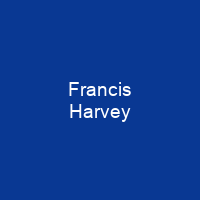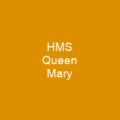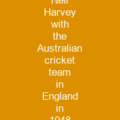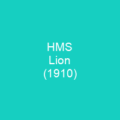Major Francis John William Harvey, VC
Francis Harvey was a British Royal Marine Light Infantry officer during WWI, whose actions on the high seas earned him the Victoria Cross posthumously.
The Early Years and Training
Born in Upper Sydenham, Kent, Francis Harvey’s journey to becoming a naval artillery specialist began with his training at the Royal Navy College, Greenwich. In 1892, he graduated as a full lieutenant, setting the stage for his future role on some of the largest warships of his time.
Specialization and Service
Harvey specialized in gunnery, a critical skill that would prove invaluable during the First World War. He served aboard various ships, including HMS Lion, where he directed the operation and fire of eight 13.5-inch guns. His expertise was not just theoretical; it was hands-on and crucial for the safety and success of his ship.
The Battle of Jutland: A Turning Point
During the pivotal Battle of Jutland on May 31, 1916, Harvey’s actions were nothing short of heroic. As HMS Lion was hit by nine shells from SMS Lützow, causing significant damage, he gave orders to close magazine doors and flood compartments to prevent a catastrophic explosion. His quick thinking saved over 1,000 lives.
However, the fire from the initial hit gained strength and ignited more charges, setting off another explosion that destroyed HMS Indefatigable and claimed 1,013 lives. HMS Queen Mary also exploded, killing 1,275 sailors, while Rear-Admiral Horace Hood’s flagship HMS Invincible was destroyed with 1,032 lives lost.
A Posthumous Honor
Harvey’s charred corpse was buried at sea with full honors. His actions during the Battle of Jutland were so extraordinary that he was posthumously awarded the Victoria Cross for his bravery. This award is not just a recognition of his individual heroism but also a testament to the critical role of gunnery training officers in naval warfare.
Legacy and Impact
The Battle of Jutland, where Harvey’s actions were pivotal, was one of the largest and most significant naval battles in history. His decision to flood the magazine on HMS Lion prevented a potentially catastrophic explosion that could have destroyed the entire ship and its crew.
Harvey’s story is a reminder of the immense responsibility carried by those who serve at sea during wartime. His actions highlight the importance of quick thinking, bravery, and the critical role of gunnery training in ensuring the safety and success of naval operations.

Major Francis John William Harvey’s legacy lives on as a symbol of courage and sacrifice. His actions during the Battle of Jutland not only saved countless lives but also earned him the highest honor in the British military, the Victoria Cross. His story serves as an inspiration to all those who serve and protect their nations.
You want to know more about Francis Harvey?
This page is based on the article Francis Harvey published in Wikipedia (retrieved on November 27, 2024) and was automatically summarized using artificial intelligence.







